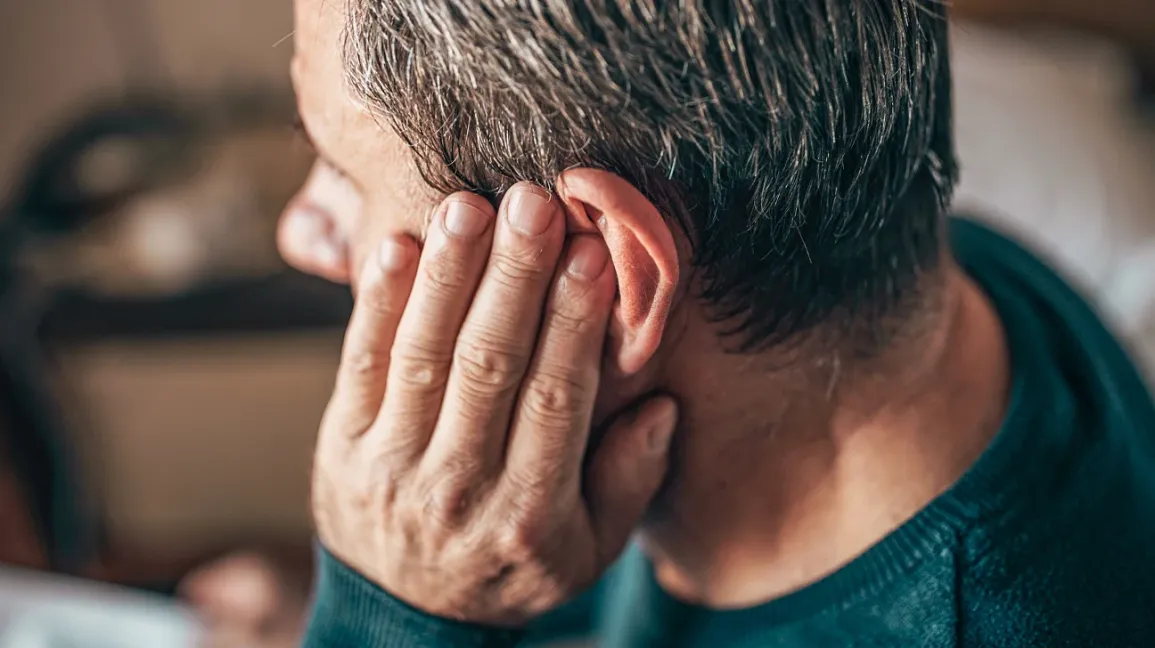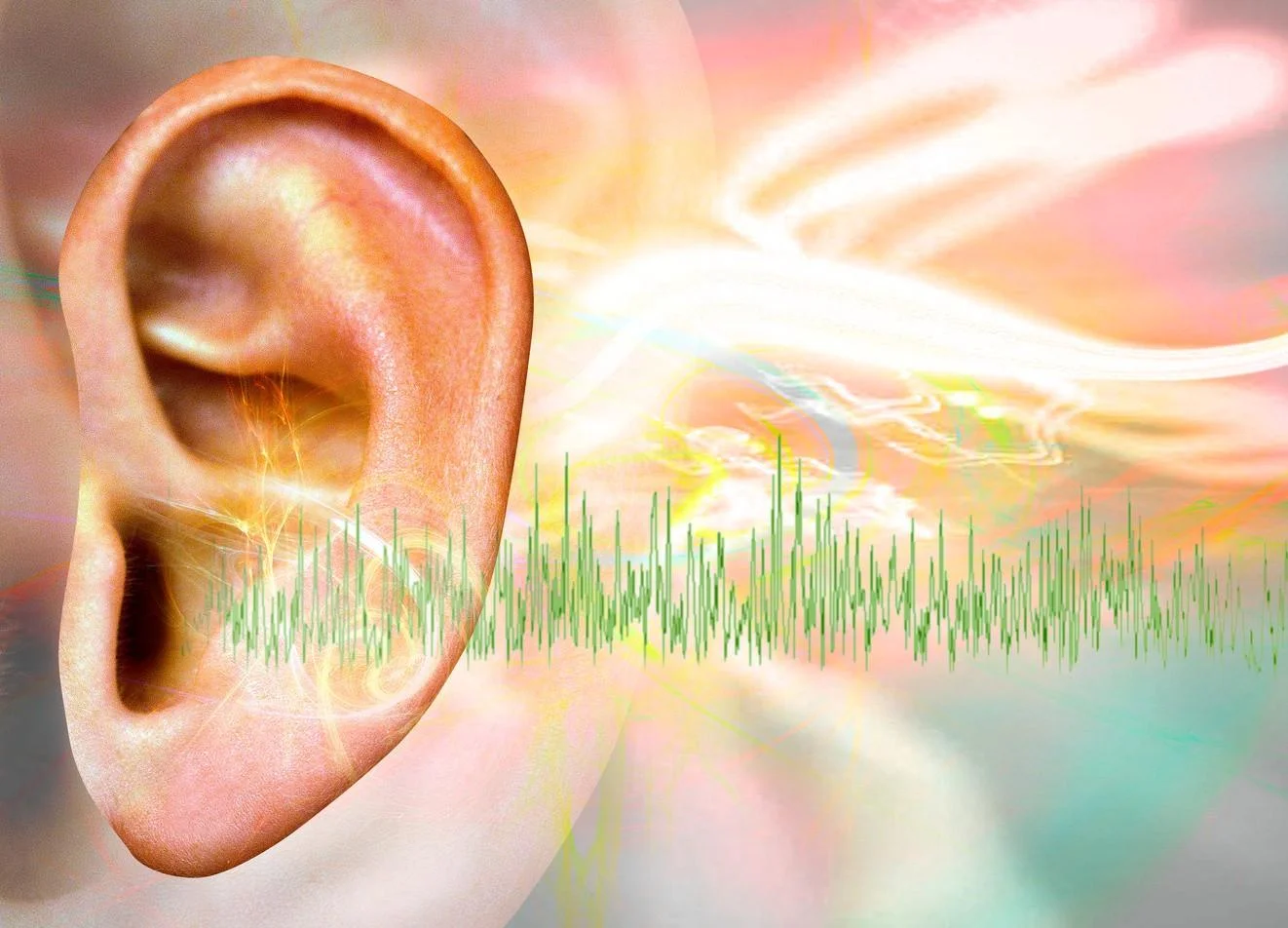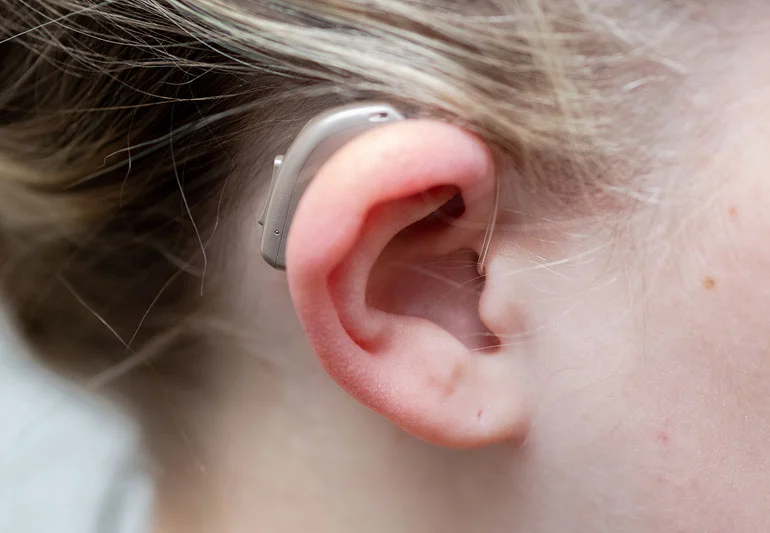Hearing is one of the primary senses that connect us to the world. The hum of a bustling city, the chirping of birds on a lazy afternoon, or the heart-warming sound of a loved one’s voice – all of these enrich our lives. Yet, many of us take this sense for granted until subtle changes start to hint at potential solutions.
Contents
Recognizing the Early Signs
There are several common early signs of hearing loss, including:
Difficulty in Noisy Environments
Do you find it challenging to follow conversations when you are in a crowded place? If voices blend into the background noise at parties, malls, or restaurants, it could indicate a decline in your hearing abilities.

Source: healthline.com
Struggling with Higher Frequencies
Frequently asking people to repeat themselves, especially women and children whose voices are on the higher frequency end, can be a sign too. These higher-pitched sounds can be the first to go unnoticed.
TV Volume Creep
If family members or roommates mention that the TV or radio volume is unusually loud, take note. Gradually increasing the volume can be an unconscious adjustment to a decrease in hearing capacity.
Missing Out on Everyday Sounds
The rustling of leaves, the distant call of a bird, or the tick-tock of a clock – if these sounds are fading from your daily experience, it might not be just a shift in your environment.
Tinnitus or Ringing in the Ears
An intermittent or continuous ringing, buzzing, or hissing sound in one or both ears can often be associated with hearing issues. While tinnitus doesn’t always signify hearing loss, it’s essential to address it promptly.

Source: ent-sd.com
Potential Causes and Prevention
There are various reasons why a person might experience hearing loss. Age, prolonged exposure to loud noises, certain illnesses, and medications can contribute. It’s essential to be aware of these factors and take preventative measures.
Protect Your Ears
When attending loud events or working in noisy environments, ear protection is a must. Foam earplugs or noise-canceling headphones can make all the difference, reducing your exposure to harmful decibel levels.
Regular Checkups
Like all health matters, regular check-ups with an audiologist can help in the early detection of hearing loss. It’s a proactive approach to ensure any issues are addressed promptly.
Limit Earphone Use
Blasting music directly into your ears can have detrimental effects over time. Keeping the volume at a moderate level and taking breaks can prevent potential damage.

Source: health.harvard.edu
Steps to Take If You Notice These Signs
There are several things that you can do if you have noticed any of the early signs of hearing loss. These include:
- Seek professional advice: Consulting an audiologist should be the first step. They can conduct comprehensive tests to determine the extent of the issue and suggest solutions.
- Stay informed: Understanding the nature and degree of your hearing loss is vital. It empowers you to make informed decisions about treatments and lifestyle changes.
- Consider hearing aids: Modern hearing aids are discreet, effective, and can be tailored to individual needs. They can be a game-changer for many, restoring not just sound but also confidence.
- Communication techniques: If hearing becomes a challenge, learning specific communication techniques can help. For example, watching the speaker’s face and lips closely can aid in understanding spoken words.
Stay Connected with Support Groups
For many, acknowledging hearing loss can bring about feelings of isolation. Yet, you’re far from alone. Numerous support groups and communities provide advice, share experiences, and offer emotional support. Engaging with these groups can be invaluable, not only for practical tips but for the sense of understanding and camaraderie they bring. Connecting with others in similar situations can bring comfort, reduce any associated stigma, and offer new perspectives on coping and thriving with hearing challenges.

Source: healthyhearing.com
Adapting Your Environment for Better Hearing
Your surroundings play a significant role in how you perceive mood. Making specific modifications at home and work can enhance your listening experience. Consider optimizing room acoustics by using rugs or drapes to minimize echoes. Place speakers closer to where you sit, ensuring audio clarity. Invest in devices with clear sound quality, and if possible, incorporate visual aids like flashing lights for doorbells or alarms. By tailoring your environment, you can create a space conducive to your unique hearing needs, allowing for a more comfortable and accessible day-to-day life.
Incorporating Technology into Your Hearing Journey
In today’s digital age, there are a plethora of apps and devices specifically designed to aid those with hearing challenges. Smartphone apps can amplify sound, transcribe conversations in real-time, or even turn your device into a makeshift hearing aid. Plus, there are specialized alarms, doorbells, and phones that use vibrations or visual signals to alert users. Staying updated with the latest in assistive technology can greatly enhance daily interactions and overall quality of life. Embracing these tools can help to bridge the gap between you and the world of sound around you.

Source: health.clevelandclinic.org
Educate Your Circle
When experiencing changes in your hearing, it’s crucial for those closest to you to understand the challenges and adjustments you’re going through. Talk to your friends, family, and coworkers about the nuances of your hearing condition. Sharing tips, like facing you while speaking or reducing background noise during conversations, can make interactions smoother and more enjoyable. It not only helps in better communication but also builds empathy and understanding, leading to closer and more supportive relationships.
Understanding the Psychological Impact
Any change in our senses, especially a vital one like hearing, can have emotional and psychological repercussions. It’s not uncommon to feel frustration, sadness, or even anxiety when faced with hearing challenges. Recognizing and addressing these feelings is crucial. Seek counseling if needed or find other sources of mental health support that help. Remember, it’s not just about regaining sound; it’s also about ensuring mental and emotional wellbeing during this transition.

Source: issuu.com
Changes in hearing can be subtle and gradual, making it easy to overlook or dismiss. But recognizing these signs early can lead to effective interventions, preventing further decline. With the right guidance and tools, you can continue to enjoy sound.
